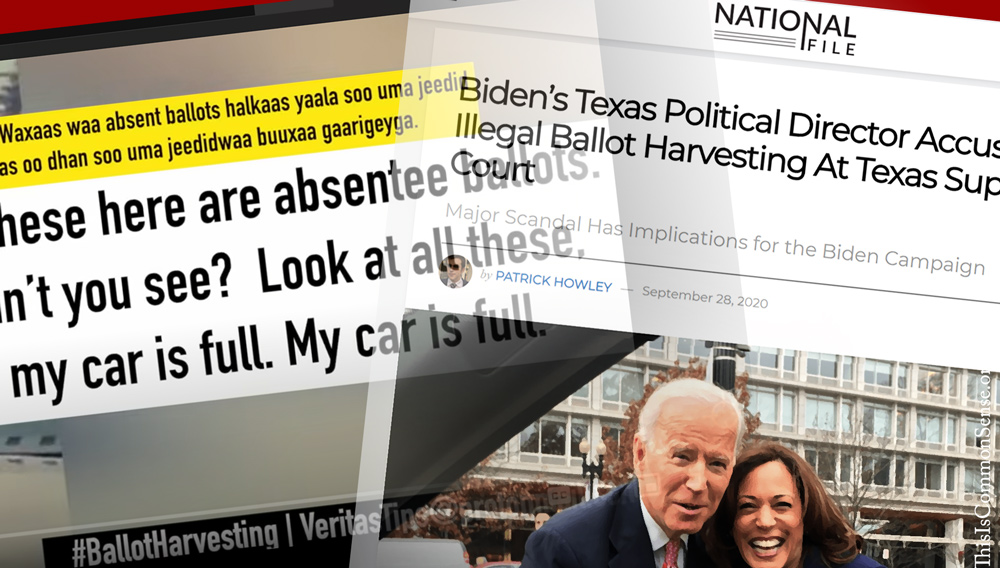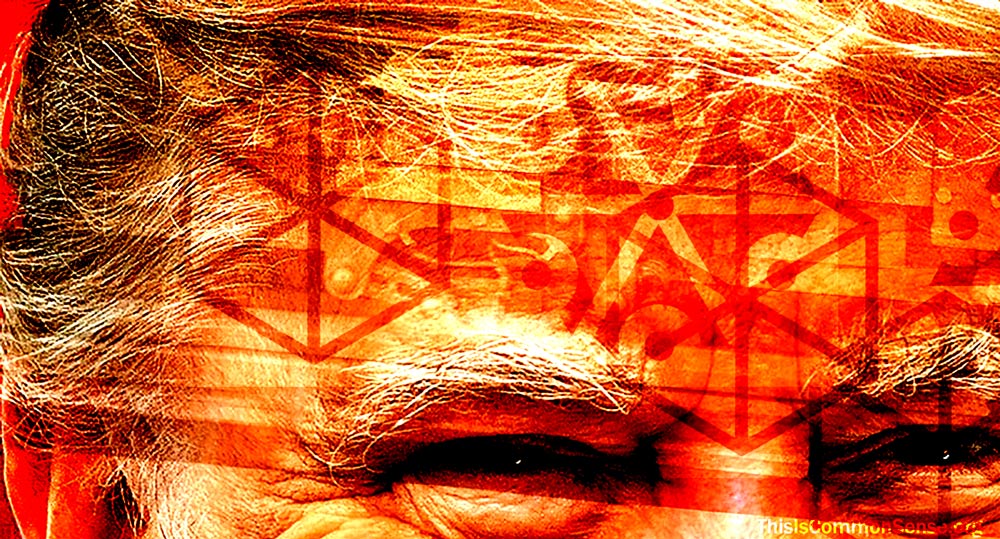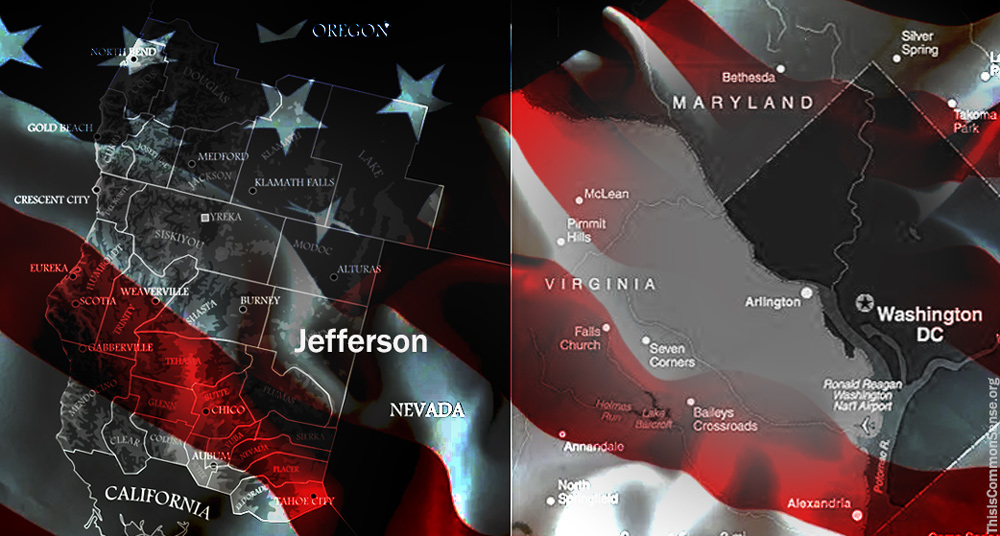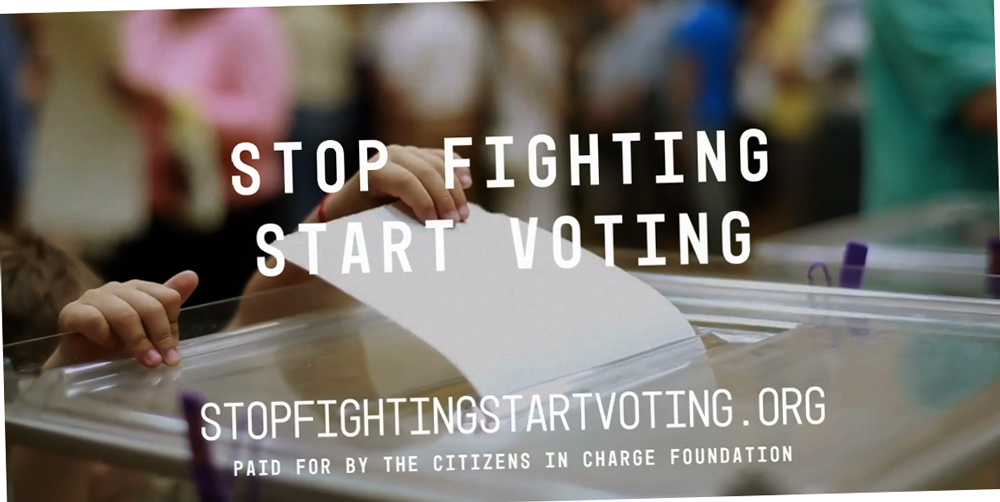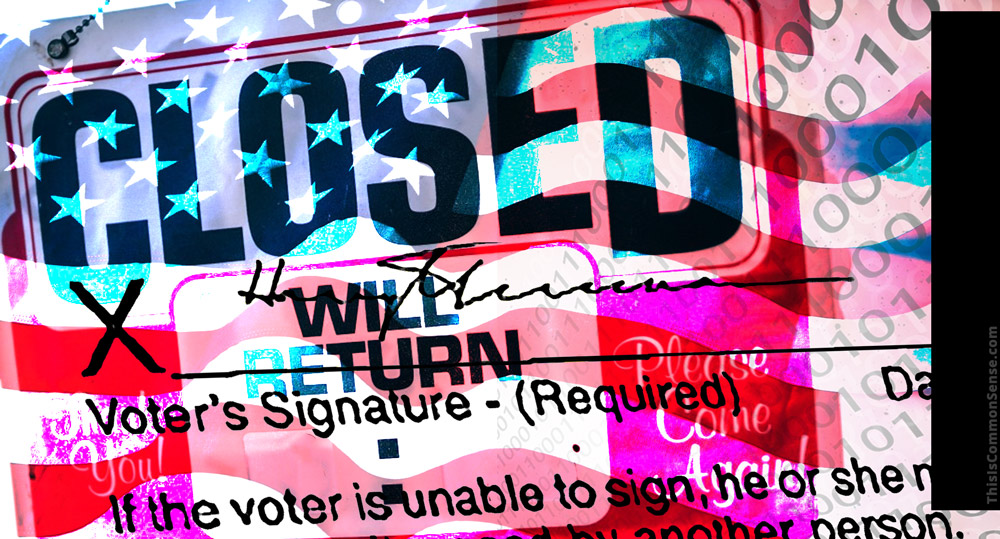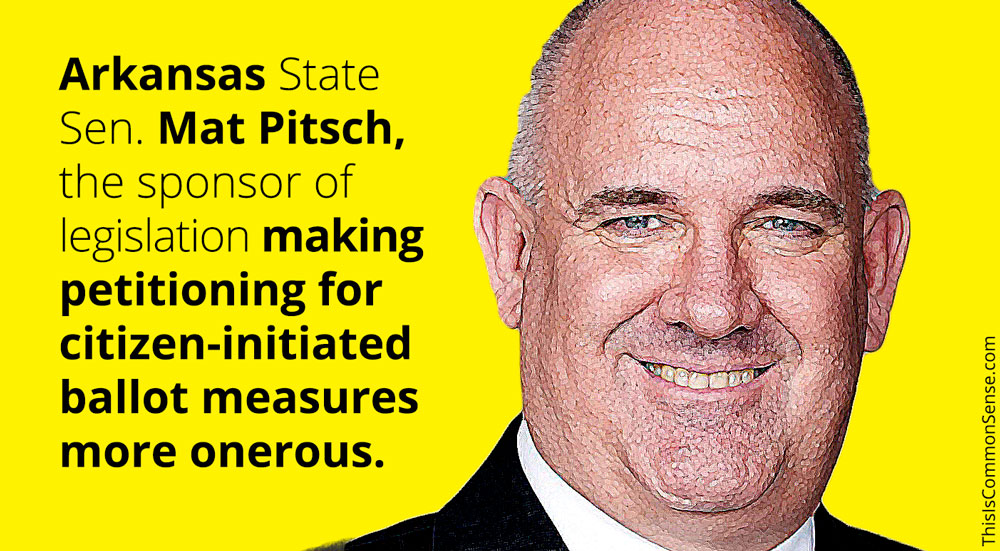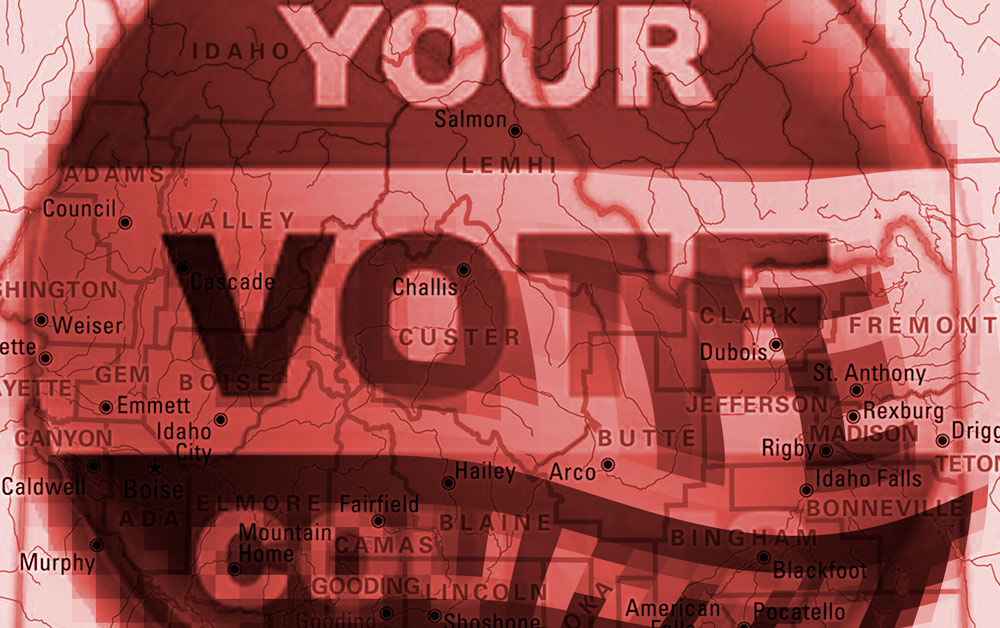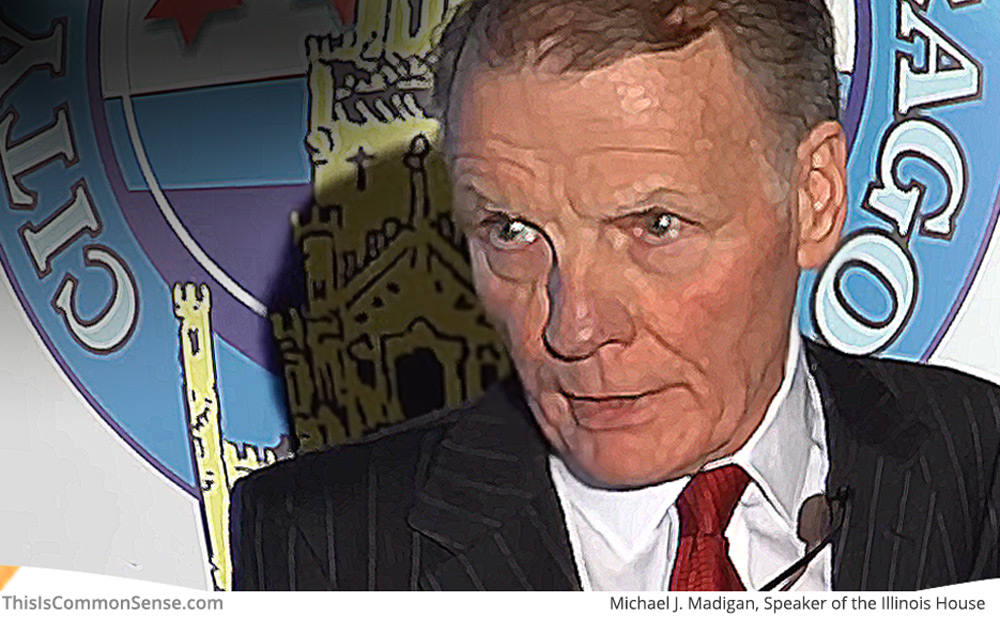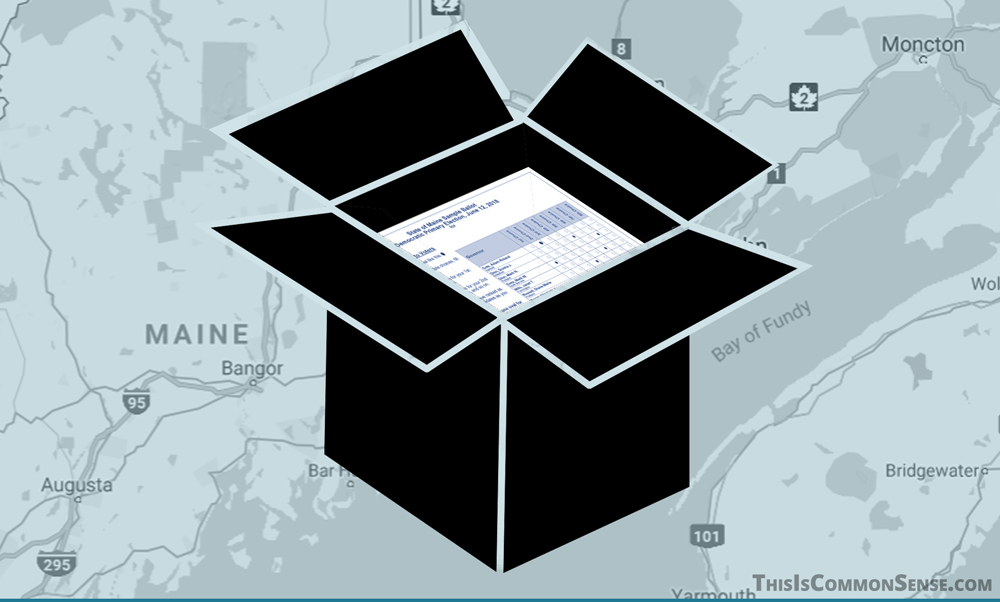Democrats say Trump is going to steal the election. But what if they are “projecting”? Politics has gotten so nasty that you wouldn’t be a cynic to express no surprise at stories like these:
- Project Veritas uncovered a “ballot harvesting” scam in Representative Ilhan Omar’s Minneapolis district, implicating, it seems, Omar (D‑Minn.) herself; and
- Formal accusations against a Biden campaign official, and others, for a similar scheme in Texas.
The Minnesota story is juicy; the Project Veritas video speaks for itself.
But in Texas? “Two private investigators, including a former FBI agent and former police officer, testify under oath that they have video evidence, documentation and witnesses to prove that Biden’s Texas Political Director Dallas Jones and his cohorts are currently hoarding mail-in and absentee ballots and ordering operatives to fill the ballots out for people illegally, including for dead people, homeless people, and nursing home residents in the 2020 presidential election.” That, courtesy of the industrious Patrick Howley, in the thick of the investigation.
“Witnesses have shown me,” the former FBI agent testifies, “how the ballot harvesters take absentee ballots from the elderly in nursing homes, from the homeless, and from unsuspecting residences’ mailboxes. The ballot harvesters then complete the ballots for their preferred candidate and forge the signature of the ‘voter.’”
Several Biden campaign workers and two Harris County bureaucrats are implicated. It will be interesting to see if these accusations lead to charges.
And how many similar stories will emerge elsewhere.
Folks can argue about how much voter fraud happens, but when we find it, let’s act.
This is Common Sense. I’m Paul Jacob.
See all recent commentary
(simplified and organized)
See recent popular posts
